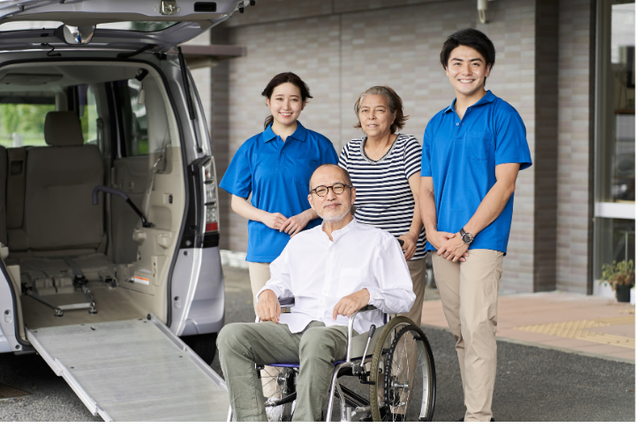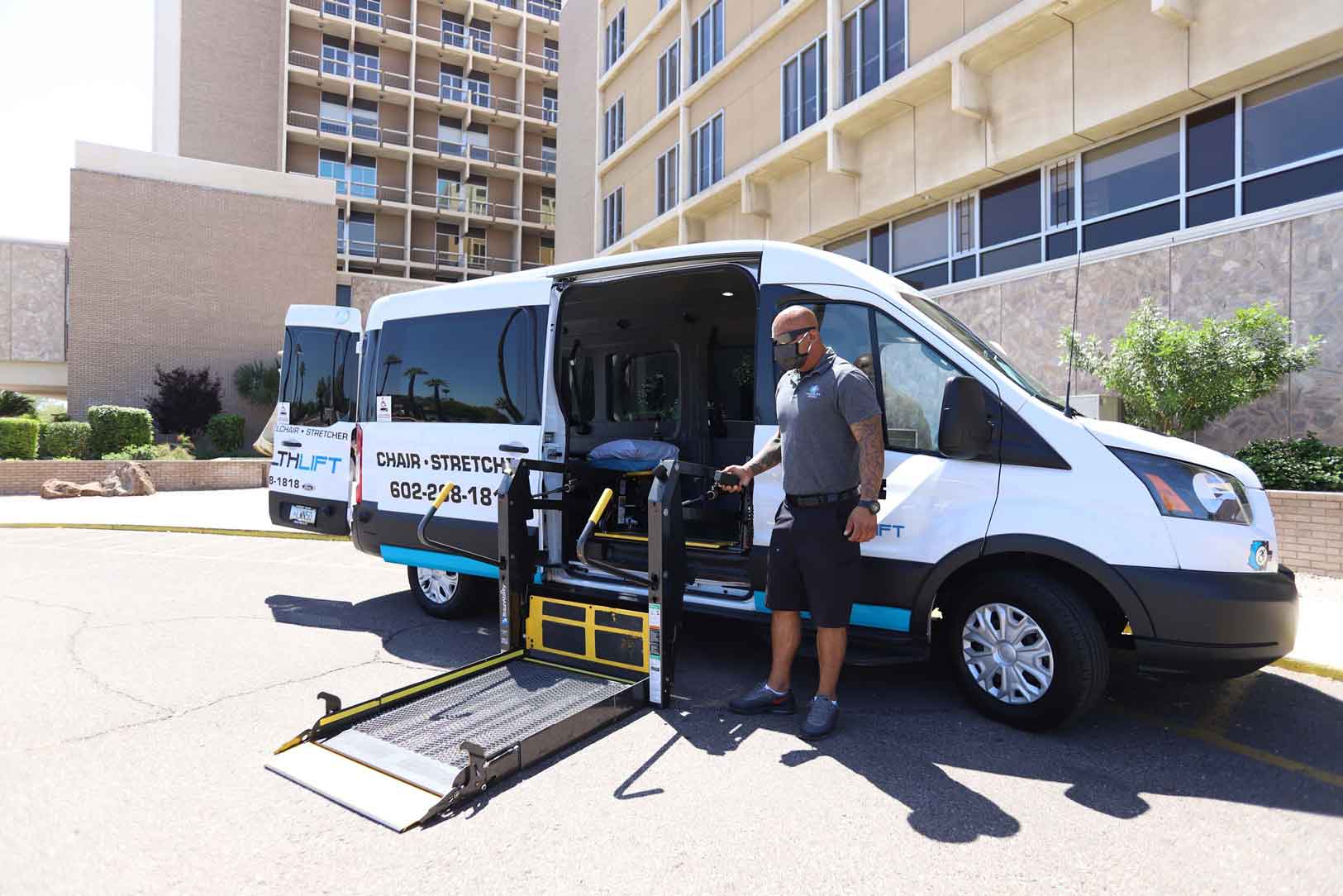Your Reliable Choice: Medical Transportation Services Near Me
Your Reliable Choice: Medical Transportation Services Near Me
Blog Article
Accessible and Affordable Medical Transport Options for Seamless Health Assistance
In the realm of healthcare, the access and cost of clinical transportation are extremely important in making sure individuals can access the treatment they need when they require it. The capability to seamlessly browse transportation choices can considerably influence a person's capacity to receive prompt clinical interest, follow-up treatment, and overall wellness. From non-emergency clinical transportation solutions to innovative options like telehealth, the landscape of medical transportation is advancing to meet the varied demands of clients. Taking into consideration the significance of this facet in healthcare shipment, discovering the array of choices readily available becomes vital for resolving gaps in availability and price.
Non-Emergency Medical Transportation Services

These solutions are staffed by trained professionals who prioritize individual convenience and safety and security throughout transportation. Drivers are equipped to deal with individuals with varying medical requirements and make sure that all trips are smooth and stress-free - Medical Transportation Services Near Me. Additionally, non-emergency medical transportation solutions frequently utilize specialized vehicles that are wheelchair-accessible, making them ideal for a wide variety of patients with various flexibility needs
Volunteer Vehicle Driver Programs
Volunteer vehicle driver programs are crucial in supplying transportation support for people in demand of non-urgent treatment. These programs rely upon the kindness of volunteers that donate their time and vehicles to assist transportation individuals to and from clinical appointments. By using volunteer motorists, companies can provide an economical service for individuals that may not have access to trusted transport.
One of the vital advantages of volunteer chauffeur programs is the personalized treatment and attention that people get. Unlike traditional transport services, volunteer vehicle drivers commonly develop a relationship with the individuals they assist, producing a caring and encouraging atmosphere throughout what can be a difficult time. In addition, volunteer chauffeur programs can aid connect the void for individuals staying in rural or underserved areas where public transportation options might be limited.
Public Transport Options

Among the essential benefits of public transportation is its prevalent schedule in rural and urban areas alike. This comprehensive network permits individuals from diverse histories to take a trip to medical visits with loved one ease. Furthermore, mass transit systems are frequently outfitted to accommodate individuals with specials needs, giving accessible travel choices for those with flexibility challenges.

Ride-Sharing and Transport Network Firms
The evolution of modern transportation options for medical purposes extends beyond conventional public systems like buses and trains to include the ingenious realm of ride-sharing and transportation network companies. Ride-sharing services such as Uber and Lyft have actually changed the means individuals take a trip to medical visits, providing benefit and flexibility to patients that might not have accessibility to their automobiles or standard public transportation. These platforms allow customers to ask for an experience with the touch of a button on their smartphones, providing door-to-door solution that can be especially useful for individuals with mobility obstacles or those calling for support.
Transportation network firms (TNCs) have actually also played a significant duty in connecting the gap in clinical transportation solutions. Companies like Veyo and RoundTrip specialize in non-emergency clinical transportation, satisfying individuals who require a higher degree of help during their trips to medical centers. By partnering with doctor and insurers, TNCs make certain that clients can access dependable and prompt transportation remedies, ultimately contributing to enhanced health end results and patient contentment.
Telehealth and Online Examinations
Enhancing health care ease of access and convenience, telehealth and digital appointments have emerged as essential components in modern-day medical techniques, revolutionizing the method individuals connect with medical care companies. Telehealth leverages innovation to assist in remote communication in between clients and health care professionals, using a vast array of services such as online appointments, remote monitoring, and electronic prescriptions. Online appointments enable clients to seek clinical suggestions, medical diagnosis, and treatment from the comfort of their homes, removing the demand for physical visits to healthcare facilities. This method not only saves time and minimizes transport prices for people yet additionally boosts the total efficiency of healthcare delivery.
Moreover, telehealth plays a crucial duty in prolonging medical solutions to underserved areas, backwoods, and people with minimal wheelchair. By breaking down geographical obstacles and boosting health care outreach, telehealth promotes early treatment, continuity of treatment, and individual engagement. As modern technology proceeds to advance, telehealth is poised to play an increasingly substantial function in shaping the future of medical care delivery, promoting better health outcomes and person satisfaction.
Conclusion

From non-emergency clinical transportation solutions to ingenious solutions like telehealth, the landscape of clinical transportation is progressing to meet the varied needs of people.Non-Emergency Medical Transportation Provider help with the prompt and safe transport of people needing non-urgent clinical care to and from health care centers.The development of additional info modern-day transportation alternatives for medical functions expands beyond standard public systems like buses and trains to include the cutting-edge realm of ride-sharing and transport network companies.Transport network firms (TNCs) have likewise played a substantial role in connecting the void in medical transportation solutions. Non-Emergency Medical Transport Services, Volunteer Chauffeur Programs, Public Transport Options, Ride-Sharing and Transport Network Companies, and Telehealth and Virtual Consultations all play an important duty in addressing transportation barriers to health care accessibility.
Report this page